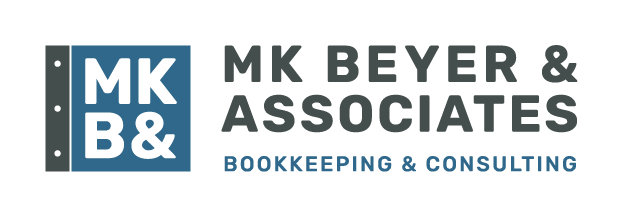Cash Flow for Small Business

Today we are going to talk about small businesses. What they are, why they fail, and how can they find success. So what is a small business? A small business as defined by the Small Business Administration is a privately owned enterprise with 500 or less employees. That is a pretty broad definition, so let’s break it down to get a picture of what MOST small businesses are. 81% of small business have no employees. 86.6% of non-employer firms are sole proprietors or single member LLCs (SMLLC) 14% of employer firms are sole proprietors or single member LLCs (SMLLC) not taxed as S-corporations More than 50% of small employer firms are S-corporations Small businesses comprise: 99.9% of all firms 99.7% of all firms with paid employees Almost half of private sector employees and GDP And more than a third of private sector payroll and receipts Before we move to the next topic, it is important to talk about how the pandemic changed the small business landscape. The Small Business & Entrepreneurship Council estimates 29.7% of small businesses closed in 2020, up from an average of 7-9% yearly. However, 4.4 million new businesses were started in 2020 – the highest on record to that point. In 2021, that grew to 5.4 million. And in the first 3 quarters of 2022 there have been 3.8 million small businesses started. With all of that great news, what are we here to talk about? One thing we hear often is how many small businesses fail. So let’s take a look at what the Small Business Administration reports on this front, which we will visit from the consistent data we had prior to the tumult of 2020, 2021, and 2022 Pre-pandemic, 32.4% of businesses failed in first two years, 51.1% failed by year 5, 63.4% by year 10, and only a quarter of all small businesses made it to year 15. But there is some good news, according to SCORE, about 82% of the small businesses that do fail, do so because of cash flow problems. That means that a strong financial foundation can increase the likelihood of a business falling in that 25% long term success story! So what is cash flow and why does it have such a strong impact on business success? In the simplest terms, cash flow is the net amount of cash and cash equivalents that transfer in and out of a business. The types of cash flows in a business are: Operations which are all transactions from all operational business activities Investing which includes capital expenditures (used to acquire, upgrade, or maintain physical assets like property, plants, buildings, technology, or equipment) Financing which is the measurement of the cash flowing between the business and its owners (equity) and creditors (debt) Some of the easiest ways to successfully manage cash flows are: Build a budget – by building an operating budget and sticking to it, businesses are able to finance their own activities through profits. With MK Beyer & Associates, this is an ongoing process we work through with new clients with a goal to get them to operating budget and then help increase profits. Protect your credit – pay your bills on time, keep your net terms with vendors as low as possible, and do not delay payments. Follow the saying, “you can only get a loan when it looks like you don’t need one.” Watch cash flows so you can borrow money before you need it. Manage inventory well – inventory is a business asset – manage it as if it was cold, hard cash, because that is what it essentially is. Have a savings reserve – yes, this is hard and not always possible early on in a business, but having at least 3 months of expenses in savings can mean the difference between staying in business or closing up shop. Many of the businesses that failed in the pandemic did not have the reserve available to allow them time to pivot. Many small businesses also seek financing to expand and strengthen financial health and create a reserve. And when you ask, ask for twice what you need! 75% of all small business applicants receive some of what they asked (less than 50% receive all of the financing asked for). And do you know what a business needs to secure financing? Complete and accurate financial records that are created and maintained well and regularly by…. A great bookkeeper! Look for professionals offering proactive guidance and with a track record of success with clients. This will be a long term relationship, so personality fit is also very important. And while all bookkeepers will help manage transactions, many do not focus on the additional aspects of business management that can affect cash flows. As many of our clients are solopreneurs, small owner/operators, and partnerships looking to grow, MK Beyer & Associates helps our clients additionally by focusing on: Tracking their time – this helps identify where they are working outside of income generating activities and determines when the cost/benefit reaches a point where it is time to bring on new employees or outsource activities to consultants or contractors To think about the goals of their business – what is the biggest most exciting goal they can envision for the business? Is it realistic? If not, what would make it realistic? Do they want to stay an owner/operator or move into more of a CEO role? Do they want to sell the company at some point for profit or retirement? These goals help us guide them through the financial decisions they need to make to find success. And to help them work through some of the more emotional aspects of the financial process that brought them to us in the first place. Many clients come to us after years of not taking action on the financial health of their business due anxiety, shame, or fear. These are some of the common things we hear in consultations and from
